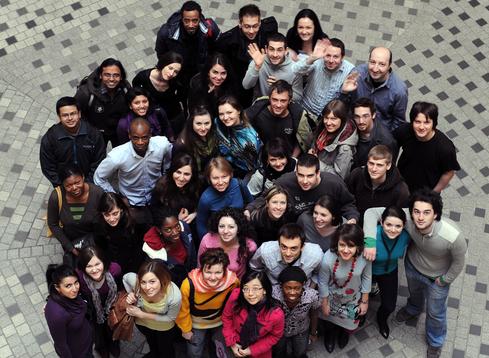Tech companies take note: Millennials desire work-life balance and a sense of purpose more than the career fast-track.

As tech companies battle to attract and retain millennials, they would be wise to step back and consider how this generation is both similar -- and uniquely different -- to Baby Boomers and Gen X.
They're similar in that the employee experience is what drives someone to work at a particular company, but different in that millennials want collaboration with coworkers and work-life balance to be a greater part of the experience.
Let's face it -- tech companies assumed, at their peril, that what satisfied boomers and Generation X would also engage millennials. Most millennials came into the workplace from an era of relative social, political, and economic stability and assumed employers would understand their generation's unique expectations. Why the disconnect? What does it really take to keep young talent happy within a technology organization?
[Build an enterprise app store, gamify your company, support consumer tech. Read How CIOs Can Build A Millennial Enterprise]
To answer those questions, we didn't need to look beyond our own walls at PricewaterhouseCoopers (PwC). Just recently, some young professionals left after working at the firm for only a few years. While this is a natural point for young workers to seek other employment, what was unexpected was that they seemed to lack interest in the traditional professional services career path -- one that requires an intense work commitment in the first few years with the goal of eventually becoming partner later in their careers. Why was this happening? What were they looking for that they weren’t finding within our firm?
Some would say the answer is more flexibility, a "millennial issue," but their definition of flexibility differs from older generations. Millennials want the ability to shift hours -- to start work days later and put in time at night. The younger generation is equally as committed to work productivity as other generations, but view work as a "thing," not a "place."
Some would argue that the younger generation wants it all compared to their older colleagues who value autonomy and achievement. Does the younger generation really "want it all" though?
Don't be so quick to think so.
"NextGen: A Global Generational Study," a report from PwC, the University of Southern California, and the London Business School found that Baby Boomers and Generation X care more about money, while millennials are surprisingly willing to take a pay cut and be promoted at a slower pace if it means working at their dream company, especially one with a social purpose.
The older generation prefers to work alone while millennials prefer group settings and collaboration, as noted in PwC's "The connected employee experience" paper. In fact, it's not surprising to find millennials now leading company programs such as community service and corporate social responsibility projects. These programs fit in perfectly with millennials' desire to have personal connections to a company and work in group settings.
When people say that millennials “want it all,” it means that millennials are trying to raise the bar on work-life balance and redefine what work means. They share high standards for work quality, but they have equally high standards for the quality of their lives.
So what does your business need to do to attract and retain these millennials?
One size doesn't fit all -- create a flexible work culture
PwC found in its global generational study that 15% of male employees and 21% of female employees would give up some of their pay and slow the pace of promotion in exchange for working fewer hours. Adopting policies that promote work-life balance such as allowing a remote work location or flexibility in hours without having to execute a formal arrangement have been helpful in millennial recruitment and retention.
Fully leverage technology, and invest in it
It's no surprise that millennials are comfortable with the rapid evolution of technology and some even choose not to join a company if they cannot use social media sites like Twitter, Facebook, and LinkedIn during the work day. Millennials want work to mirror their personal lives and expect to have access to the same technology experience in and out of the office. Companies should make it a priority to offer the best technology tools for collaboration, productivity, and flexibility.
Offer coaching and open dialogue
Who said the younger generation is too high maintenance? They're actually more open to feedback than their older colleagues. Millennials love working in groups, so emphasize teamwork and weave it into your company culture. Give them feedback face-to-face and in real-time. Appreciation and support from supervisors goes a long way.
Too many companies treat digital and mobile strategies as pet projects. Here are four ideas to shake up your company. Also in the Digital Disruption issue of InformationWeek: Six enduring truths about selecting enterprise software. (Free registration required.)
About the Author(s)
You May Also Like







